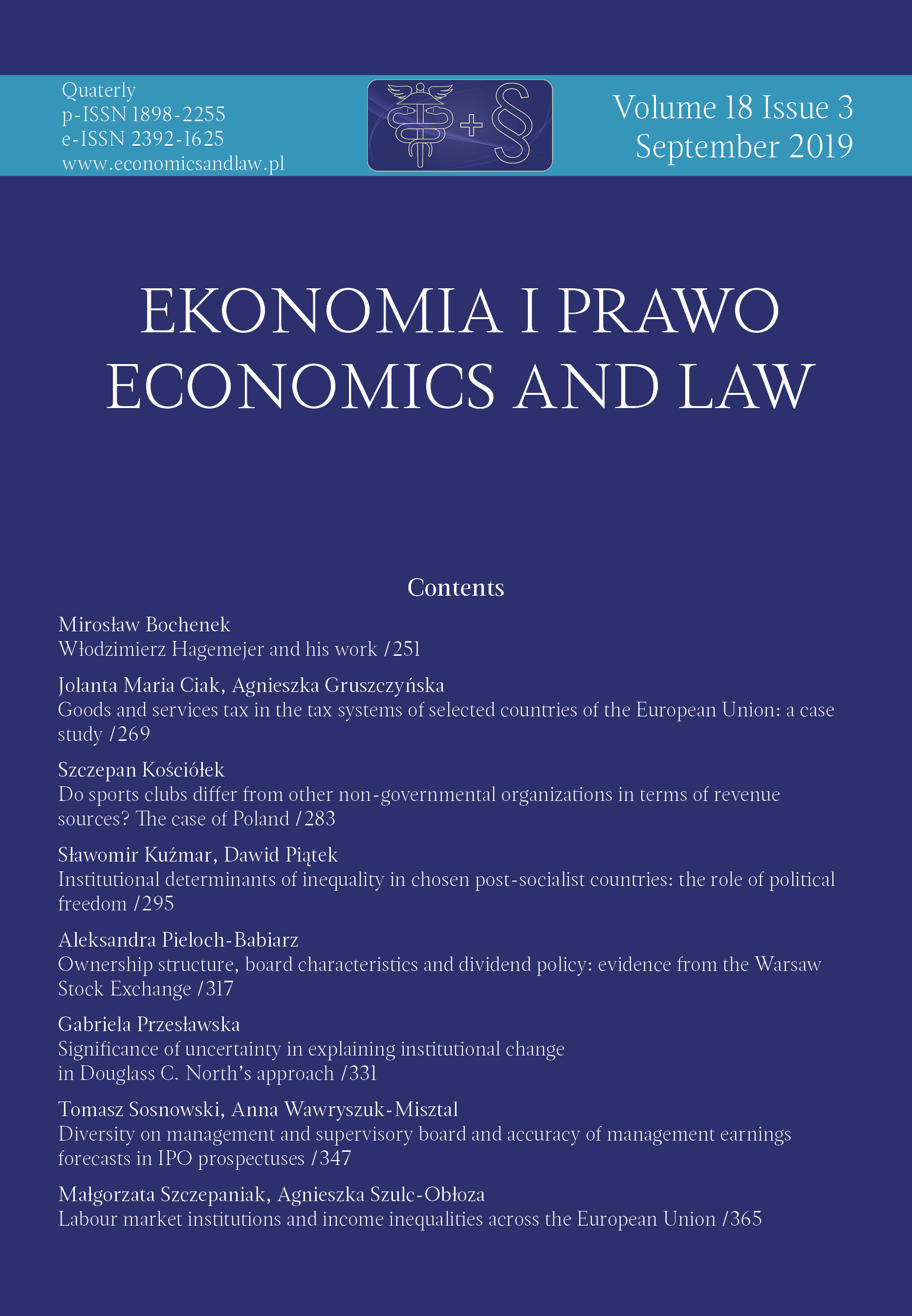Labour market institutions and income inequalities across the European Union
Labour market institutions and income inequalities across the European Union
Author(s): Małgorzata Szczepaniak, Agnieszka Szulc-ObłozaSubject(s): Economy, National Economy
Published by: Wydawnictwo Naukowe Uniwersytetu Mikołaja Kopernika
Keywords: income inequalities; labour market; institutions
Summary/Abstract: Motivation: Labour market institutions are currently considered as the basic condition for high level of economic development. Decreasing income inequalities on contrary are among the main objectives of macroeconomic policy in the European Union (Europe 2020 Strategy), because unequal distribution may result in lower growth and development rates. The research done in the article is consisted with the institutional theory (D.C. North’s interpretation).Aim: The main aim of the article is to analyse the relations between labour market institutions and income inequalities. There is also an attempt to answer the question if rigid labour market institutions reduce income inequality in European countries. This article provides a taxonomic analysis of labour market institutions in the EU countries. Data from Eurostat, World Bank, Fraser Institute, OECD are used. The article covers selected years: 2010 and 2016.Results: The countries were grouped according to the level of labour market institutions and in regard to income inequalities. The differences between the members of the groups were analysed between 2010 and 2016. Article ends with conclusions connected with rules shaping decisions on the labour market as well as relations between inequalities and institutions.
Journal: Ekonomia i Prawo. Economics and Law
- Issue Year: 18/2019
- Issue No: 3
- Page Range: 365-377
- Page Count: 14
- Language: English

